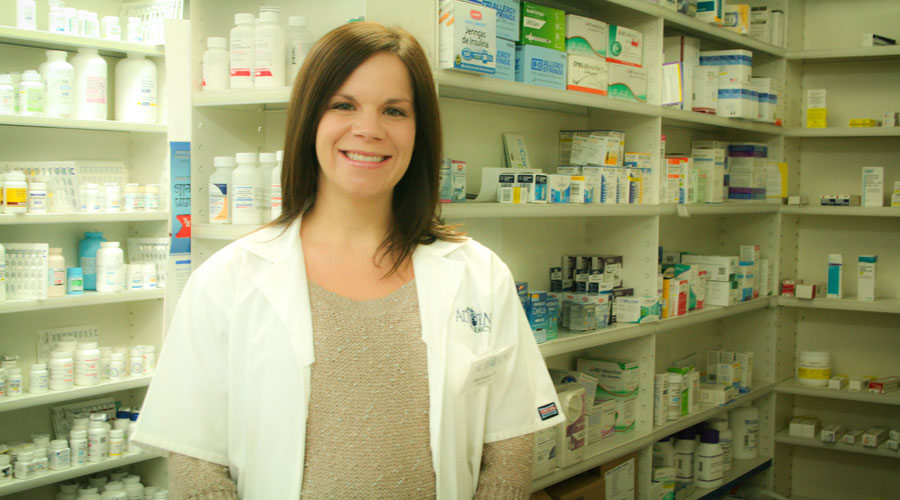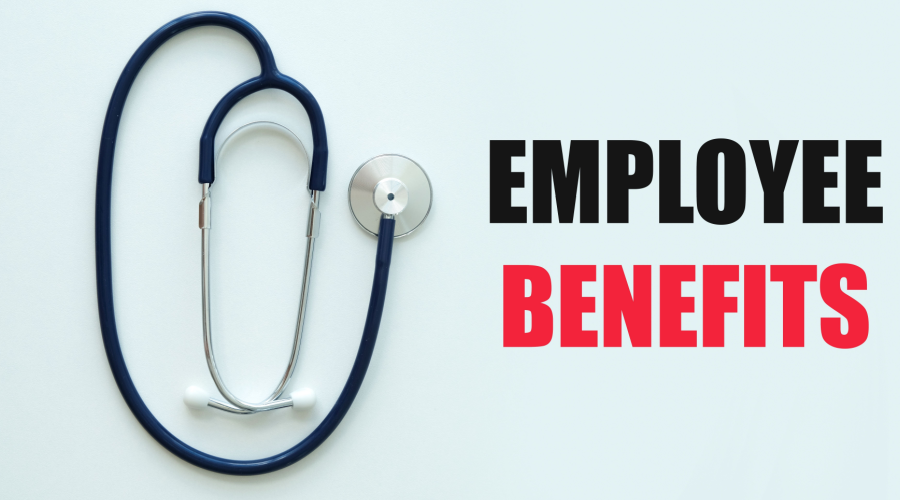Melissa Gilkison, Pharm.D., never expected to use her CPR training. But when a man collapsed in an aisle of the Price Chopper, a regional grocery store chain, where she was working, she sprang to action.
“I had just opened the pharmacy, like any normal day, and about five minutes later one of the employees came over and asked if I knew CPR,” said Gilkison, director of long term care with AuBurn Pharmacies, which has a location inside the Overland Park, Kan., Price Chopper. “She told me, ‘There’s a man down over there,’ and I ran over.”
When Gilkison arrived, an elderly man lay on his back in the aisle, suffering from what appeared to be a heart attack. He was pale, had no pulse and wasn’t breathing.
“There was someone doing chest compressions that wasn’t CPR-certified when I arrived, and they kind of backed off and I took over and started CPR,” she said.
“Someone had already called 911, so I did compressions for about five minutes until the paramedics got there.”
Unfortunately, the man later died at the hospital. But without Gilkison, who was the only person in the store trained in CPR, he may never have had any chance at all.
“She had just renewed her CPR certification less than a month before this happened, never knowing she would need it so much,” said Michael Burns, R.Ph., president and CEO of AuBurn Pharmacies. “As pharmacists, we truly are the front line in health care and situations like this prove it.”
We talked with Melissa Gilkison, Pharm.D., about her experience using CPR and the important role pharmacists play today as health care professionals.
Did you think you would ever use your CPR training before this?
Oh no. I was hoping I would never have to. I just happened to be the one there. I think anybody else would have done it in the same situation. There just was no one else in the store with the training. I just happened to be that person that day.
Do you think this experience has brought awareness in the community to the importance of CPR training?
Yes. People in the Kansas City area have become more aware. Neighbors, friends and customers have all talked to me about it. Everyone has mentioned that they were surprised that I was the only one in the store who was CPR-certified. There were probably 20 to 30 people in the store at the time.
I’ve had people tell me they have kids at home and now want to get CPR-certified. They’ve asked me questions about whether they can get certified, even if they’re not in a health care field. I said anybody could do it. I’ve had a lot of good feedback from people about it, and it has motivated them to get CPR-certified now. I’ve told them to ask their employers and maybe they’ll start offering training.
I think people were probably surprised that pharmacists have to be CPR-certified in order to give immunizations. CPR-certification is important, but when EMT showed up, obviously I was out of there. Those people do it for a living every day. But it’s one more thing that we have under our belts, and it’s good to have.
Is it important for independent pharmacists to get CPR training?
Yes, especially if you’re in a retail setting. People are going to go to you. Someone ran to me—the pharmacist—and asked if I was CPR-certified, not knowing if I was or not. You’re the only health care professional in that kind of setting. Just because we don’t have a lot of hands-on experience, doesn’t mean we can’t help. Even in a hospital setting, the pharmacist may be talking to a patient and something could happen. So yes, it’s incredibly important.
How long have you been CPR-certified?
I’ve been CPR-certified since I was a lifeguard in high school. I just renew. When I started pharmacy school, I got CPR-certified, and then I’ve continued with it so I can give immunizations, but I’ve been CPR-certified since I was probably 17 years old.
Are independent pharmacists becoming more clinically focused today than in the past?
Definitely. CPR-certification is one of those things that does keep us up-to-date as pharmacists and it does make us more of hands-on medical professionals, whereas before we weren’t at all. Being able to give immunizations was a big step in the right direction for pharmacists.
If we never would have gotten approval to give immunizations, I don’t know if I would have kept my CPR-certification up or not. I can’t say that I would or wouldn’t have. I’ve got kids, so maybe I would have. I’ve been CPR-certified for years because I was a lifeguard, but that doesn’t mean I would have kept it up if I didn’t have to. I only do it when I have to renew every two years.
What other additional training is important for pharmacists to have?
It depends on your specialty. There are lots of things you can train yourself in, depending on what kind of practice you’re in. There are classes; there are CEs; there are all kinds of different trainings you can do to become certified in specific areas. We have a couple of people in our company who are trained to help diabetic patients, and that’s a big part of retail and independent settings. Fitting diabetic shoes and helping patients find the right walkers, things like that are very important.
Do you think the role of the pharmacist is changing?
Definitely. With the direction health care and insurance is going, with doctors and doctors’ offices so busy dealing with how they’re going to get paid, a lot of the training for the patients falls on the pharmacist. Our patients trust us more and more every day. We hear all the time, ‘My doctor didn’t explain any of this to me; I don’t really understand it; You guys know better anyways, so I just waited to ask you.’
And that’s a good feeling. When they leave their doctor’s office confused and they know they can go ask their pharmacist, that’s great. Or, if they don’t get a lot of time at the doctor, they know their pharmacist will spend time with them. So, I think doctors’ offices are, unfortunately, having to focus on whose insurance they carry and how they’re getting paid and how much time they have with each patient, which is less and less. So, our role is definitely becoming more important in educating patients.











